Search Results
Showing results 381 to 400 of 540
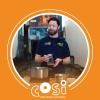
Maillard Reaction
Source Institutions
In this activity, learners will explore the chemistry of cooking. They will learn about--and observe--the Maillard Reaction as they make their own browned butter.
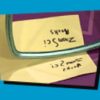
Mirror Messages
Source Institutions
In this activity, learners use mirrors to write secret messages to a friend. Use this activity to explore letters, optics, and/or symmetry.
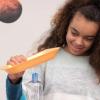
Exploring the Universe: Static Electricity
Source Institutions
This activity encourages visitors to build an electroscope—a simplified version of one of the tools scientists use to study the invisible forces on Earth and in space.
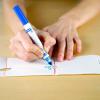
Exploring the Solar System: Pocket Solar System
Source Institutions
“Exploring the Solar System: Pocket Solar System” is a hands-on activity in which visitors make a scale model of the distances between objects in our solar system.
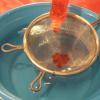
Molecular Gastronomy: Use Self-Assembly to Make a Dessert Topping
Source Institutions
Molecular gastronomy is the scientific study of food preparation. Learners use self-assembly techniques to create edible capsules of chocolate syrup (food grade ingredients are required).
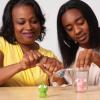
Molecules in Motion
Source Institutions
"Molecules in Motion" explores how materials behave and change in a vacuum.
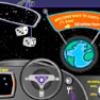
Zoom: Travel to a Star and Back to Earth
Source Institutions
This is an online activity about what would happen if we could travel at or near the speed of light.

Unleakable Bag
Source Institutions
In this activity, learners explore the flexibility of polymer chains by pushing sharpened pencils through a Ziploc bag.
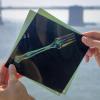
Bone Stress
Source Institutions
In this optics activity, learners examine how polarized light can reveal stress patterns in clear plastic.
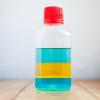
Klutz-Proof Density Column
Source Institutions
Making liquids of different densities to perfectly lay on top of each other can be a frustrating exercise. The Exploratorium created this activity as a fool proof way of making a density column.
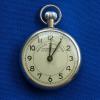
Auditory Acuity
Source Institutions
This activity (8th activity on the page) tests learners' ability to identify things using only the sense of hearing.
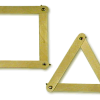
Strong Shapes
Source Institutions
Is a square stronger than a triangle? Use tongue depressors to build simple shapes. Then apply a little weight to them and see what happens!
Size Them Up: Learning About Volume and Capacity
Source Institutions
In this activity, learners will put a set of containers in order by capacity. Would the tallest container hold more or less water than the wide, short one?
Fair Shares: Predict Equal Shares
Source Institutions
Use this activity to build division and number sense into any snack time or whenever there is a limited set of things to share among a group: If we deal these out, could everyone get two pieces?
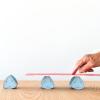
Non-Round Rollers
Source Institutions
Wheels aren't the only things that can "roll" objects that are placed on top of it. Make non-intuitive shapes from cutouts and a compass to demonstrate this.
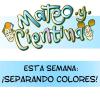
¡Separando Colores!
Source Institutions
En esta actividad, los aprendices aprenderán que es la cromatografía y cómo usarla para separar diferentes sustancias - en este caso,usarán los colores.
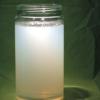
Why is the Sky Blue?
Source Institutions
In this activity, learners use a flashlight, a glass of water, and some milk to examine why the sky is blue and sunsets are red.
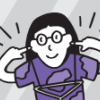
Stereo Hanger
Source Institutions
In this activity, learners investigate sound wave science, in stereo! Learners construct a "stereo" out of a metal coat hanger and piece of string to explore sound vibrations.
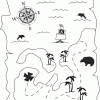
Treasure Hunters
Source Institutions
Learners use their opponent's clues and a compass rose to find the hidden treasure on a map. Learners use problem solving and coordinate grid skills as they hunt for treasure.
Number Flips
Source Institutions
In this math activity, learners play a number game to explore the relationships between numbers, combinations, and the concept of equivalency.
